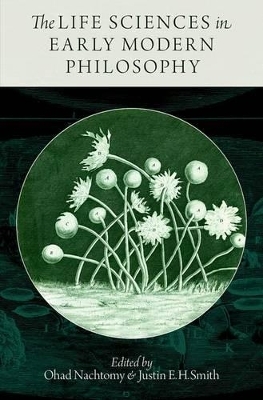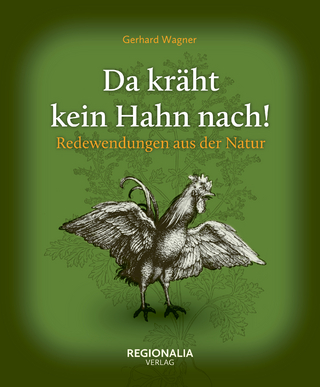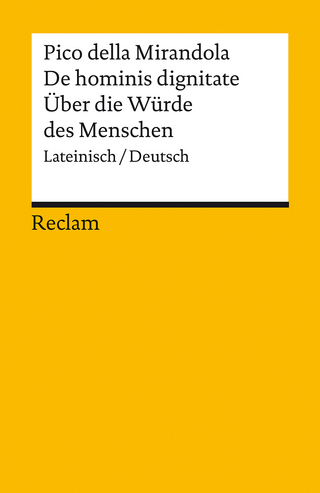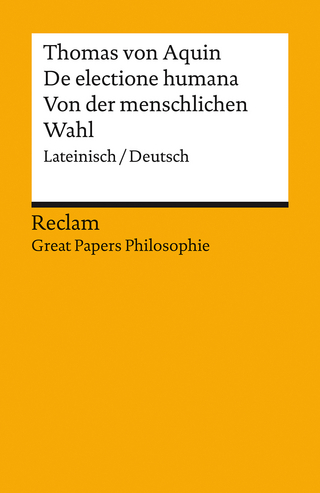
The Life Sciences in Early Modern Philosophy
Oxford University Press Inc (Verlag)
978-0-19-998731-3 (ISBN)
The present volume advances a recent historiographical turn towards the intersection of early modern philosophy and the life sciences by bringing together many of its leading scholars to present the contributions of important but often neglected figures, such as Ralph Cudworth, Nehemiah Grew, Francis Glisson, Hieronymus Fabricius ab Aquapendente, Georg Ernst Stahl, Juan Gallego de la Serna, Nicholas Hartsoeker, Henry More, as well as more familiar figures such as Descartes, Spinoza, Leibniz, Malebranche, and Kant.
The contributions to this volume are organized in accordance with the particular problems that living beings and living nature posed for early modern philosophy: the problem of life in general, whether it constitutes something ontologically distinct at all, or whether it can ultimately be exhaustively comprehended "in the same manner as the rest "; the problem of the structure of living beings, by which we understand not just bare anatomy but also physiological processes such as irritability, motion, digestion, and so on; the problem of generation, which might be included alongside digestion and other vital processes, were it not for the fact that it presented such an exceptional riddle to philosophers since antiquity, namely, the riddle of coming-into-being out of - apparent or real - non-being; and, finally, the problem of natural order.
Ohad Nachtomy is Associate Professor at Bar-Ilan University and at Fordham University. He is the author of Possibility, Agency, and Individuality in Leibniz's Metaphysics (2007); "Leibniz on Nested Individuals"(BJHP 2007); "Leibniz and the Logic of Life"(Studia Leibnitiana 2010); "Leibniz on Artificial and Natural Machines" in Machines of Nature and Corporeal Substances in Leibniz (co-edited with Justin Smith) (2010); and "A Tale Of Two Thinkers, One Meeting, and Three Degrees Of Infinity: Leibniz And Spinoza in 1675-78" (BJHP 2011). Justin E. H. Smith is university professor of the history and philosophy of science at the University of Paris 7. He is the author of Divine Machines: Leibniz and the Sciences of Life (2011) and of the forthcoming Nature, Human Nature, and Human Difference: Early Modern Philosophy and the Concept of Race. He has also recently edited and translated, with François Duchesneau, Georg Ernst Stahl's Negotium otiosum (forthcoming).
Table of Contents ; 1. Introduction: Ohad Nachtomy and Justin E. H. Smith ; I. The Nature of Living Beings ; 2. Ohad Nachtomy, "What's Infinity Got to Do with Life? The Role of Infinity in Leibniz's Theory of Living Beings" ; 3. Raphaele Andrault, "What Is Life? A Comparative Study of Ralph Cudworth and Nehemiah Grew" ; 4. Thomas Teufel, "The Impossibility of a Newton of the Blade of Grass in Kant's Teleology" ; II. The Structure of Living Beings ; 5. Peter Distelzweig, "Fabricius' Galeno-Aristotelian Teleomechanics of Muscle Anatomy" ; 6. Anne-Lise Rey, "Metaphysical Problems in Francis Glisson's Irritability Theory" ; 7. Francois Duchesneau, "'Organism' in the Leibniz-Stahl Controversy" ; III. The Generation of Living Beings ; 8. Andreas Blank, "Material Causes and Incomplete Entities in Gallego de la Serna's Theory of Animal Generation" ; 9. Karen Detlefsen, "Biology and Theology in Malebranche's Theory of Organic Generation" ; 10. Catherine Abou-Nemeh, "Reaumur's Crayfish Experiment in Hartsoeker's Systeme: Regeneration and the Limits of Mechanism" ; 11. Charles T. Wolfe, "Epigenesis as Spinozism in Diderot's Biological Project" ; IV. The Order of the Living World ; 12. Lea F. Schweitz, "On the Continuity of Nature and the Uniqueness of Human Life in G. W. Leibniz" ; 13. Brian W. Ogilvie, "Orders of Insects: Insect Species and Metamorphosis between Renaissance and Enlightenment" ; Index
| Erscheint lt. Verlag | 27.2.2014 |
|---|---|
| Zusatzinfo | 2 illus. |
| Verlagsort | New York |
| Sprache | englisch |
| Maße | 163 x 236 mm |
| Gewicht | 476 g |
| Themenwelt | Geisteswissenschaften ► Philosophie ► Philosophie des Mittelalters |
| Geisteswissenschaften ► Philosophie ► Philosophie der Neuzeit | |
| Naturwissenschaften ► Biologie | |
| ISBN-10 | 0-19-998731-9 / 0199987319 |
| ISBN-13 | 978-0-19-998731-3 / 9780199987313 |
| Zustand | Neuware |
| Haben Sie eine Frage zum Produkt? |
aus dem Bereich


